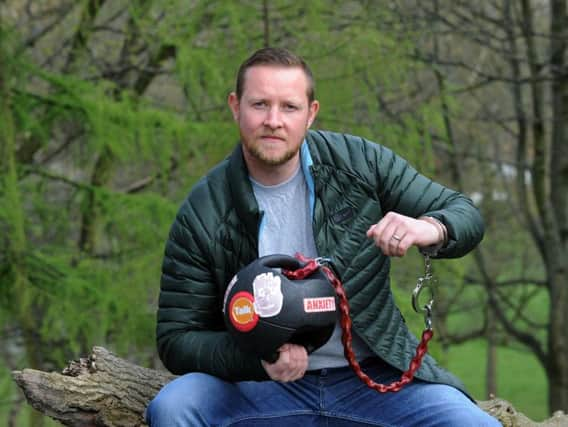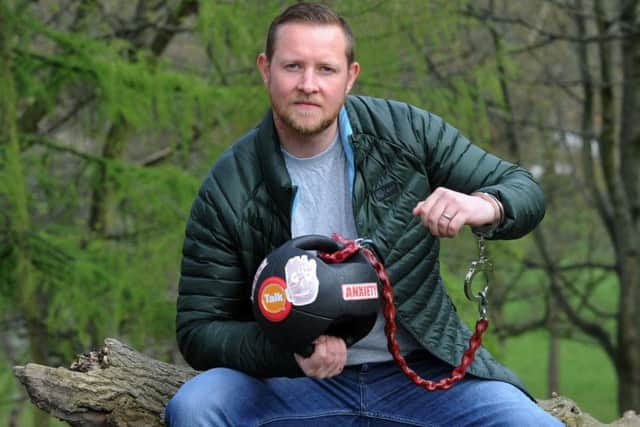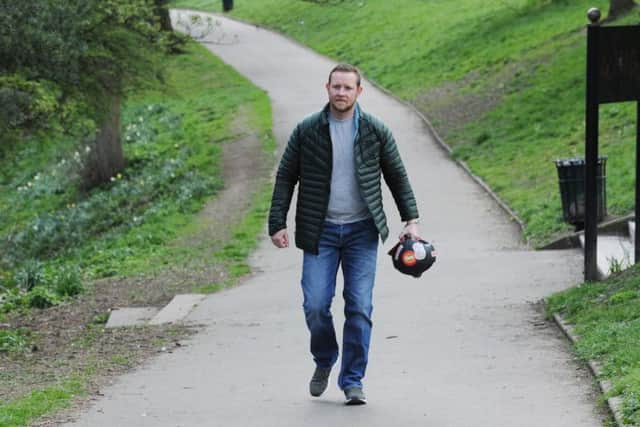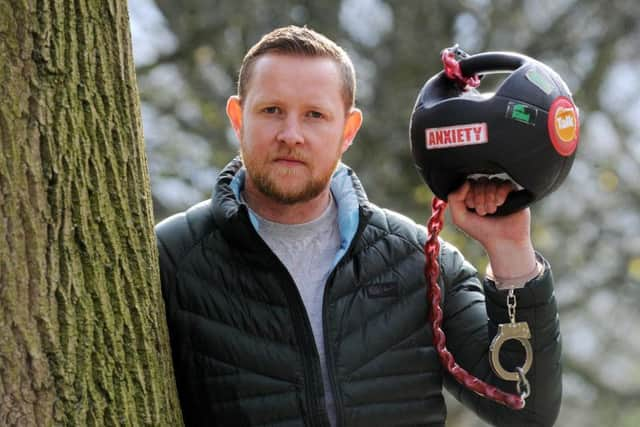Why Yorkshire Army veterans with PTSD are chaining 15kg weights to their wrists for a week


And while these can be vivid and very real, sufferers often go day-to-day with the outside world completely oblivious to their pain.
But one group of veterans in Yorkshire has come up with a way of changing that - by taking turns chaining a 15kg weighted ball to their wrists.
Advertisement
Hide AdAdvertisement
Hide AdThe Medicine Ball Challenge was the brainchild of former soldier Andy Unwin in November last year, when on International Men's Day, he got the (literal) ball rolling by spending seven days with the load handcuffed to his wrist for 24 hours a day.


The ball represents the invisible weight soldiers have to bear of post-traumatic stress disorder (PTSD) and other mental illnesses after returning from war.
Since then, the ball has been passed each week to various other veterans of the Yorkshire Regiment who have suffered. This week, it is the turn of Leeds-based ex-corporal Christian Kisby.
Christian, from Wortley, struggled with PTSD which led to a downward spiral of alcohol and drug abuse and suicidal thoughts after serving in Iraq and Afghanistan.
Advertisement
Hide AdAdvertisement
Hide AdThe 33-year-old now works as a security operations manager and has spent the week working, practising boxing, raising his children and coaching Farsley Celtic Ladies FC, all with the weight attached to him.


"It's not been easy", he admits.
"Picking up my children was difficult. But it's good because so many people have been stopping to ask me why I'm wearing it and I've explained to them about the cause. It's raising so much awareness."
Christian found himself in a dark place after seeing friend Chris Gray killed in action 12 years ago this week while serving in Afghanistan.
Advertisement
Hide AdAdvertisement
Hide Ad

"I left in August 2007. I had been out there for a six-month tour and before that I was in Iraq, where we were mortared every day.
"I left the Army in 2012 to try and do something different but that never worked out. I found myself having no money, living with my parents and drinking quite a lot. Within a year I had started taking drugs, living the party life, going out and getting into fights. I would blame the Army.
"I would sit in the dark with a bag of cocaine, bottles of alcohol and thoughts of ending it all. No one was offering to help me but the reason was because I wasn't asking for help."
Christian, who has sons Jaxon, four, and Arthur, 11 months, as well as 12-year-old step-daughter Stella, says the turning point was when his wife told him he needed to change or he wouldn't see his family again.
Advertisement
Hide AdAdvertisement
Hide Ad"Talking to my family really helped. Men in the Army don't talk about the psychological effects."
It's estimated that 22 men from the military take their own lives each year, while suicide remains the biggest killer of men under the age of 50 in the UK.
Christian added: "The ball has been passed each week to a new person. It's tough going about your daily routine with all this weight, but that's the point. PTSD follows you round everywhere you go, there's no escaping it. If this helps one man struggling with his demons that will have made it all worth it."
Advertisement
Hide AdAdvertisement
Hide AdThe Medicine Ball Challenge is aiming to raise £3,000 for charities Combat Stress and ABF The Soldiers' Charity, both of which work with the military promoting better mental health. To donate, visit the crowdfunding page here.